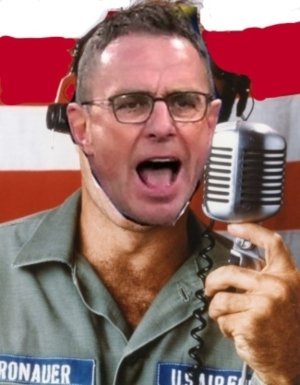Ralf Rangnick has waved goodbye to the offer of a consultancy role at Old Trafford and taken the decision to succeed fellow countryman Franco Foda, to make a first step into international management with Austria, rather than staying on with Manchester United following a lukewarm at best spell as caretaker. It's probably safe to say his first order of business from the OFB- or Osterreichischer Fussball-Bund (their FA) will be remarkably similar to the job he's just left, to revive the fortunes of Unsere Burschen (Our Boys) and get them to the major tournaments on some sort of a consistent basis, given their comparative lack of recent success in doing so.
Following an encouraging start to their Nations League campaign with a 3-0 away win in Croatia in his first competitive game in charge, there just might be enough to have those with very long memories beginning to dream of days of Wunder once more. The team built by Hugo Meisl in the early Thirties went on a 14 match unbeaten run from April 1931- December 1932, winning the Central European Championship (forerunner of the current Euros tournament) that year with a final victory over Italy, though the Azzurri would take the spoils when they met once more in the 1934 World Cup semi-finals on Italian soil.
Within just six years of reaching those dizzy heights, Meisl's death would signal the beginning of the end, not least thanks to the machinations of Nazi Germany- as though Austria did indeed qualify for the 1938 staging of the tournament in France, the Anschluss and its absorption of the country into the hands of the Third Reich meant they would not compete again until 1954 in Switzerland. There they finished second in Group 3, behind Uruguay, after wins over Scotland and Czechoslovakia led to a topsy-turvy 7-5 quarter-final win over the hosts. The world cup dream ending following a 6-1 thumping by West Germany
As for 1938, the Nazis were accused of being complicit in the death of forward Mattias Sindelar after he had refused to play for Germany. He had indeed scored against Germany in a 2-0 win for the Austrians in their final game as an independent nation, celebrating in front of those who had billed the match, played on April 3, 1938. as marking Austria's “ coming home” or Anschlusspiel.
Back to the present, and perhaps a more realistic aim for Rangnick, should be to guide Austria back onto football's biggest stage, and to emulate the sides of 1978 & '82, both of which made it out of their world cup groups before falling at the next hurdle. This was enough to earn a degree of respect not given to them as a footballing nation in decades.
That being said, their final group game in Spain ‘82 ended in an infamous draw with West Germany which saw both teams through to the second group stage. This led to a rule change which meant all such future games would be played at the same time, after suspicion was rife that the result was fixed to knock out Algeria, who had played the day before...
The last time Austria reached a world cup was in 1998, finding themselves in Group B alongside Cameroon, Chile and Italy. They finished third after two 1-1 draws and a 2-1 defeat, the only headlines they made stemming from the fact all their goals were scored in stoppage time. Surely a seat on the plane to the expanded 2026 edition across Canada, Mexico and the United States has to be a key part of the Rangnick plan?
Should they make it, he'll want to do far better than Italia '90 at least, which saw them head home almost as quickly as they'd arrived following 1-0 defeats to the hosts and Czechoslovakia, before signing off with a 2-1 win over the US.
If we delve a little deeper there has been steady improvement during their recent (and only) European Championship appearances. Their first in 2008, qualifying as co- hosts alongside Switzerland ended in much the same manner as their last World Cup. Again placed in Group B, this time with Croatia, Germany and Poland for company, they finished third after two 1-0 defeats & a 1-1 draw.
Not until 2016 would they qualify once more and, tipped by many to progress from a group also containing Hungary, Iceland and Portugal, they suffered an opening loss to their near neighbours, a creditable draw with Portugal followed by another slip up in defeat to Iceland.
They couldn't dream of much better at the most recent Euros, held over from 2020. Drawn against Holland, North Macedonia and Ukraine in Group C, two wins from three games was enough to get them to the last 16. There they lost to Italy after extra time, with their goal coming in the 114th minute as Saša Kalajdžić carried on where Toni Polster, Ivica Vastić and Andi Herzog had left off in France '98!
A far cry from the pessimism of '08 then, which saw 10,000 of their countrymen sign a petition calling on Austria to withdraw before a ball had been kicked, then- coach Josef Hickersberger resigning in the aftermath following two years in the job. Ralf will be hoping to avoid a similar fate and to build the nation towards some new highs.

